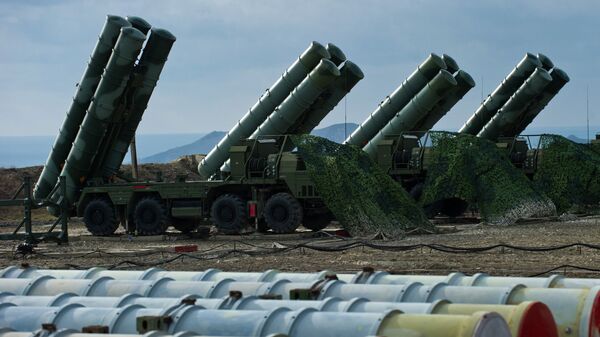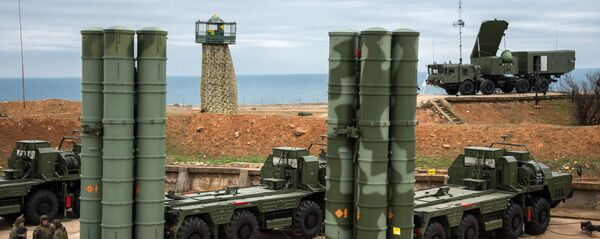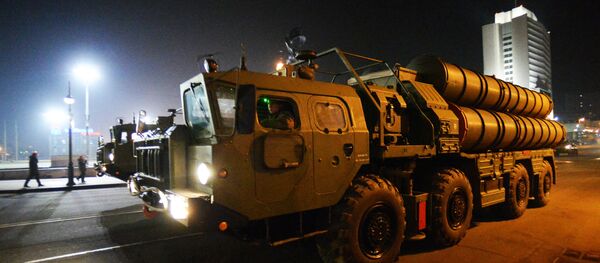Speaking to Sputnik about the implications of the S-400 deal, Dr. Amarendra Bhushan Dhiraj, a noted journalist and editorial director of CEOWORLD Magazine, outlined why New Delhi has been so anxious to buy the advanced air defense system, despite the threat of US sanctions.
"The deal could potentially open New Delhi up to US sanctions under the new [Countering America's Adversaries Through Sanctions] legislation," Dhiraj said, recalling Washington's decision to slap sanctions on China for its purchase of S-400s last month. "But whereas Beijing is an emerging rival power, New Delhi is seen as a very close strategic ally with which the US has had a convergence on a range of global affairs," the journalist added, pointing to Indian-US cooperation in the Indo-Pacific amid China's increasingly assertive behavior.
Hands Tied
"The problem for the Trump administration is that, if it allows New Delhi to buy the S-400 missile system, there is no reason why it should not also allow other nations, such as Turkey, a NATO ally [to do the same]. Exempting New Delhi weakens the effect of sanctions and opens up the United States to accusations of favoritism," the journalist explained.
"On the other hand," Dhiraj noted, "India is considered the most lucrative market in the world for arms exporters. If you look at the sheer numbers and where India has been buying from, you see a trend where America stands head and shoulders above everyone else – including Russia. The US, for its part, also understands that sanctions on New Delhi will drive a wedge between the two natural allies."
Accordingly, the business journalist said, given the US interest in maintaining access to India's arms market, "New Delhi is unlikely to be scared away from the Russians by Washington's strong-arm tactics." In his view, while the US government clearly does not want India to buy the S-400s, the Trump administration is unlikely to sanction India over the deal.
S-400s as a Strategic Game Changer
Asked what motivated India to purchase the Russian system specifically, Dhiraj pointed out that the S-400 outclasses its analogs, including the US Patriot system, in terms of capabilities, and will help New Delhi change the military balance in its home region.
"Beijing is undoubtedly a motivating factor. It seems to me that New Delhi wants the S-400 Triumf from Russia to change the strategic balance in the subcontinent and Indian Ocean regions. The S-400 will also tighten the country's air defense capabilities along the 4,000 km-long India-China border," the journalist explained.
Under the terms of the deal, India will receive five regiments (or ten battalions) of S-400s, with a battalion typically consisting of 8 launchers, 112 missiles, and the associated command, radar, and support vehicles.
The views expressed by Dr. Amarendra Bhushan Dhiraj are those of the speaker, and do not necessarily reflect those of Sputnik.



